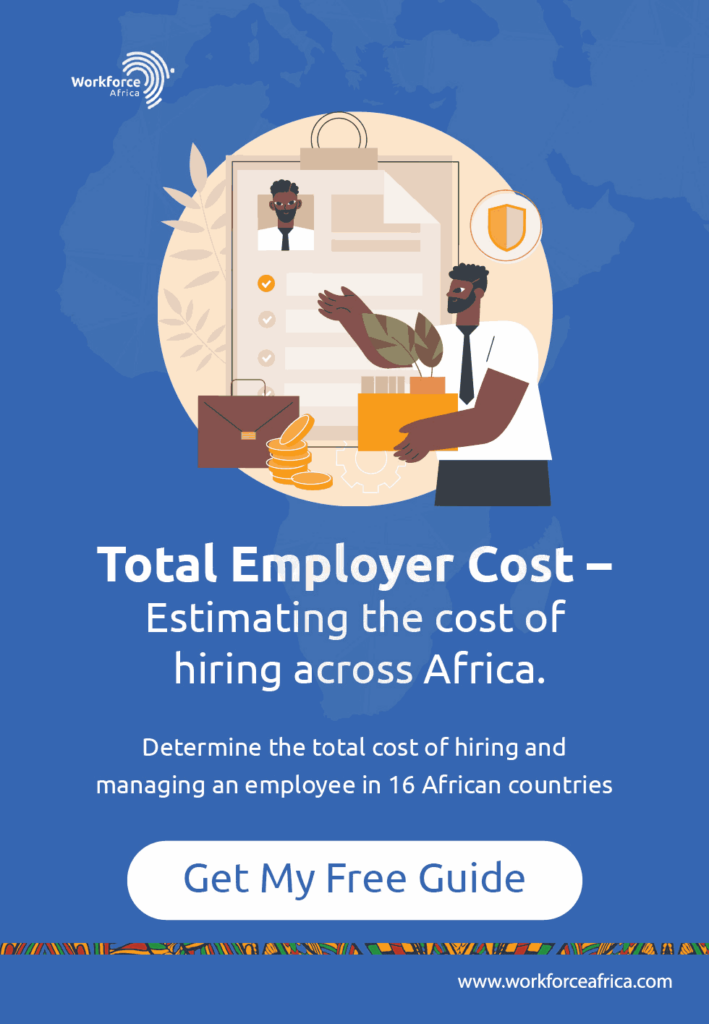

Expanding into Africa comes with its own set of challenges, particularly in terms of compliance.
This article highlights five common mistakes to avoid while navigating the compliance landscape in Africa, including inadequate due diligence, insufficient understanding of local regulations, and underestimating the importance of cultural context.
By avoiding these pitfalls, businesses can ensure a smoother expansion process and maintain compliance in their African operations.
Compliance mistakes - As a global organisation expanding into Africa, navigating compliance can be tricky; it isn't the most exciting part of running your business, but it is incredibly important.
One mistake can result in a hefty fine, reputational damage or, in severe cases, prison terms.
Compliance mistakes can result from not being adequately prepared, making errors regarding taxes or incorrectly classifying your employees. Indeed, expanding and hiring employees in Africa can be inspiring until compliance measures come into play.
When expanding into Africa, there's a lot of room for mistakes; however, many businesses don't know what rules and regulations affect their specific business models.
There are typically different regulations for each country, and these are different depending on your business size. And because these laws are ever-changing, it is important that you do due diligence by familiarising yourself with those that govern your business in the African country you choose to set up.
Moreover, with the ever-increasing access to conventional and new ones, more regulations are being implemented, proportional to compliance risks.
Aside from the huge fines and prison terms, non-compliance can significantly damage your company's reputation and send red flags to key stakeholders, investors and clients.
There are several compliance mistakes that businesses make when expanding into Africa, but there are critical ones that consistently show up. These are five (5) compliance mistakes you should avoid when expanding into Africa:
Expanding into Africa has several benefits, but it is not for those scared to take risks. Your business will need to prepare for slow processes, in-person trips, specific standards, and the overall time frame that can sometimes last a year.
In addition, each African country has its laws and regulations. As a company looking to set up in Africa, it is your responsibility to keep up to date with this.
Although you may choose to do this by getting local insights from lawyers or accountants, it can come with a hefty price.
When expanding into Africa, it is of utmost importance that key stakeholders across your business clearly understand the employment and labour laws.
In many African countries, regulations and the government often favour local employees over foreign employers.
Again, tax regulations differ from country to country and can be tricky to navigate, especially for a global business looking to establish a presence.
For example, some companies may be double-taxed, which means you'll have to pay tax in your residing country and the country you plan to expand into.
In addition, income tax and employee benefits have to be in order before you begin onboarding new talent. In Nigeria, personal income tax (PIT) is a federal obligation and must be remitted to the Federal Inland Revenue Service of the state where your employee resides.
But again, staying updated with constant changes or improvements can be challenging as regulations differ significantly from country to country, and there's no such thing as a one-size-fits-all approach.
Understanding these varying requirements is critical to ensure you don't run foul of any rules or risk hefty penalties.
Many companies expanding into Africa choose to hire independent contractors as the best solution to their expansion needs.
However in the process of preparing contracts, some companies make the mistake of including items that depict an employer – employee relationship (like a non-compete clause for example).
As a result, these contractors could easily be depicted as employees leading misclassification.
The costs for misclassification may include;
When you withhold and don't pay tax on your employee's salary, you'll be expected to pay back all due taxes and contributions.
You may be required to pay back wages to your employee
You'll be expected to pay interest on the costs accrued.
You'll also be charged for not operating compliantly in the specific country. Additional penalties vary from country to country and may range from the inability to register new employees to a complete shutdown of operations.
A properly drafted agreement is the foundation of a healthy relationship with your employee.
Unfortunately, aside from workers' misclassification issues, employers of businesses expanding into Africa fail to include employment duration terms, employee rights, compensation and benefits packages, etc.
A poorly drafted employment agreement leaves your business open to legal liabilities. As a result, it is important to be very specific and mindful of your employee's prior obligations from their previous employers.
We mentioned earlier that international expansion could be challenging regardless of location. However, you can avoid all the compliance mistakes cases discussed here. How?
Partner with Africa's leading Employer of Record (EOR) – Workforce Africa.
By doing so, your company can leave the legal and compliance issues to experts rather than risk tax backlash, 'floating' employees or engaging misclassified independent contractors.
At Workforce Africa, we aim to legally and ethically ensure your African expansion success without complications or added expenses and responsibilities.
We partner with you to ensure all employment, tax and benefits laws are compliantly followed.
If you plan on expanding to any of Africa's major markets or have already done so but are unsure if you're at risk of measures, kindly send us an email to hello@workforceafrica.com or schedule a consultation here.